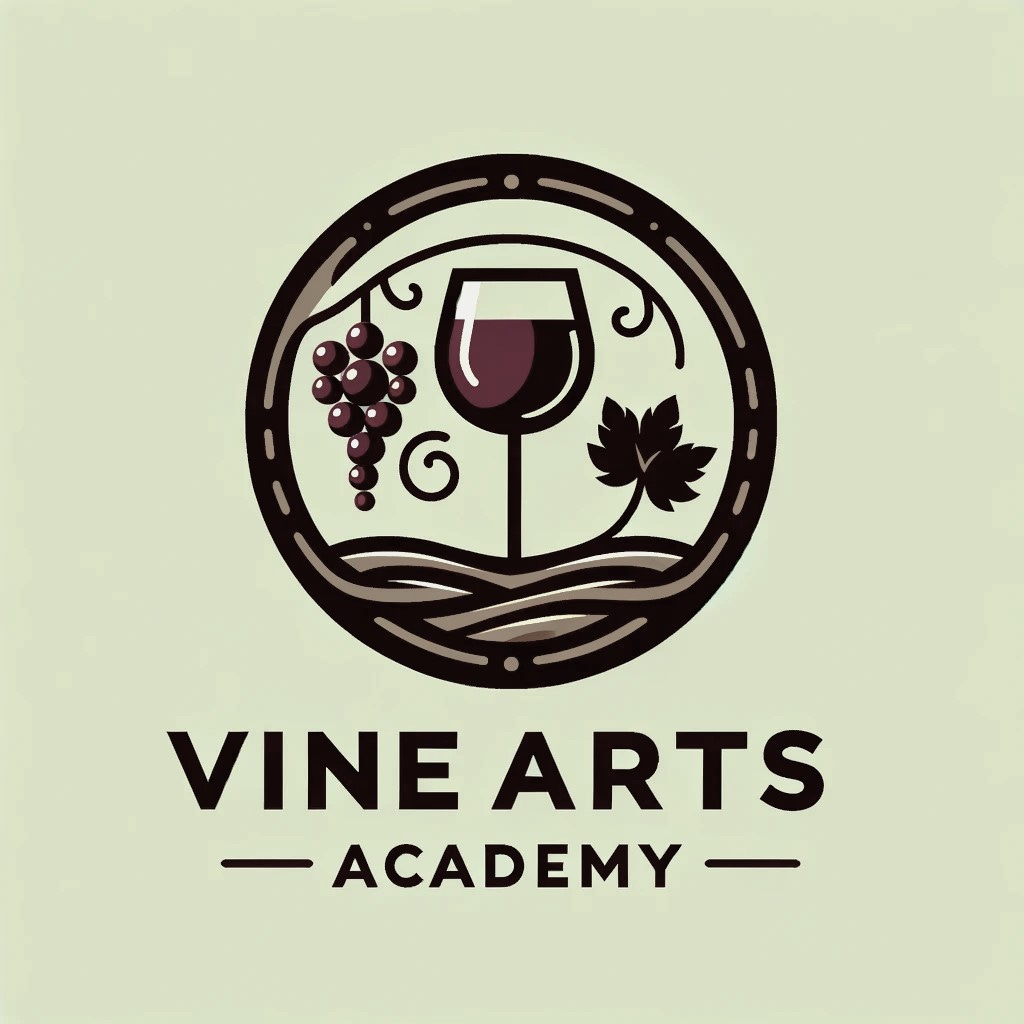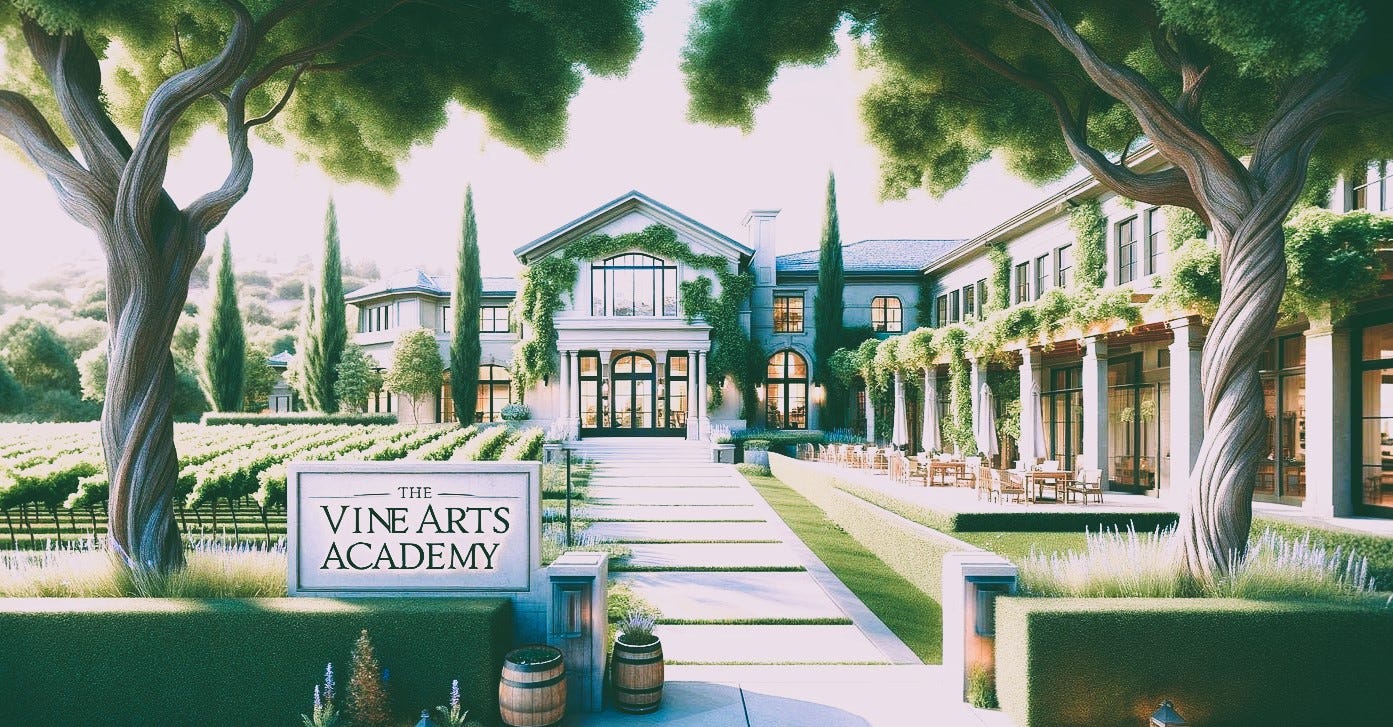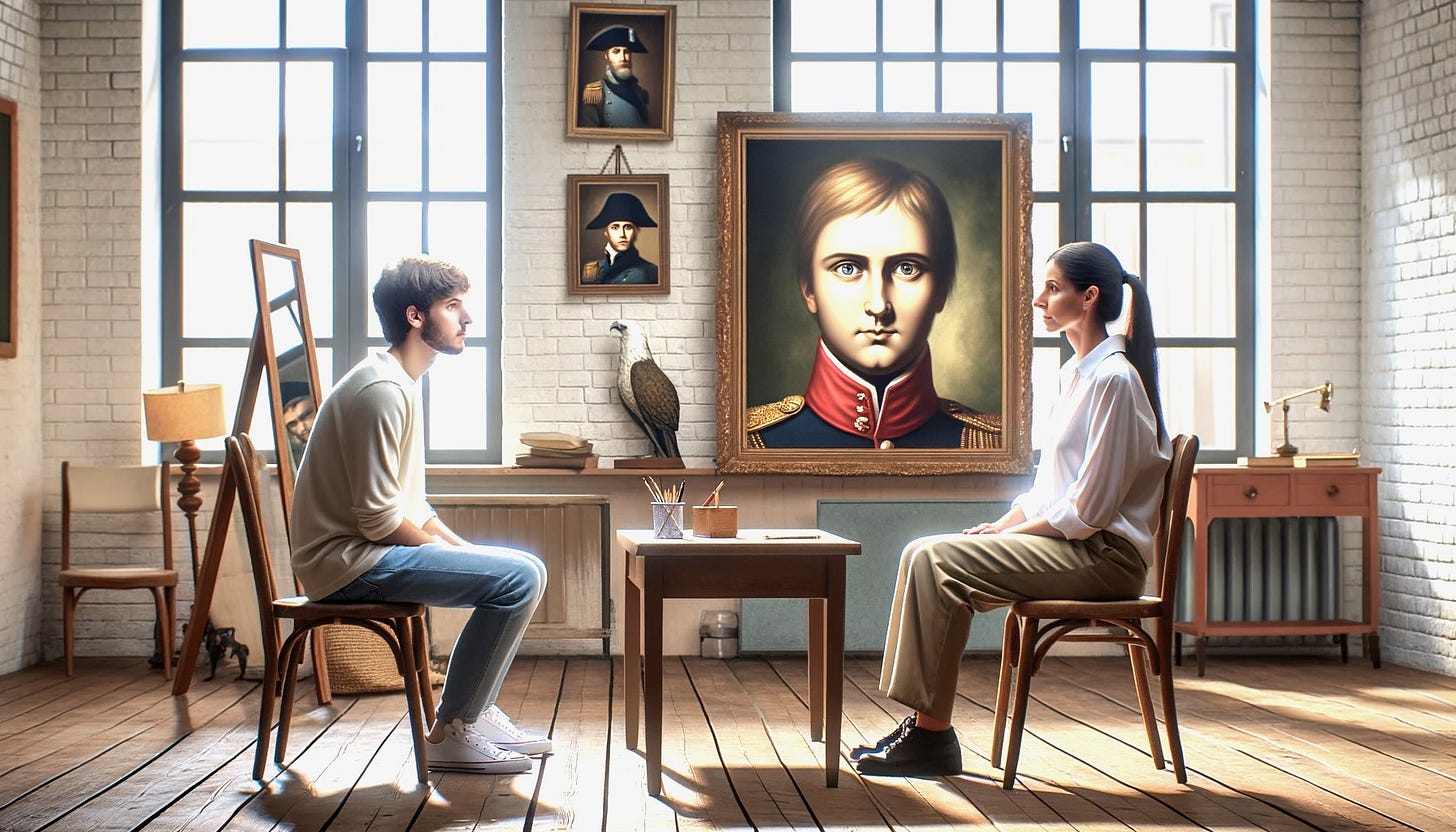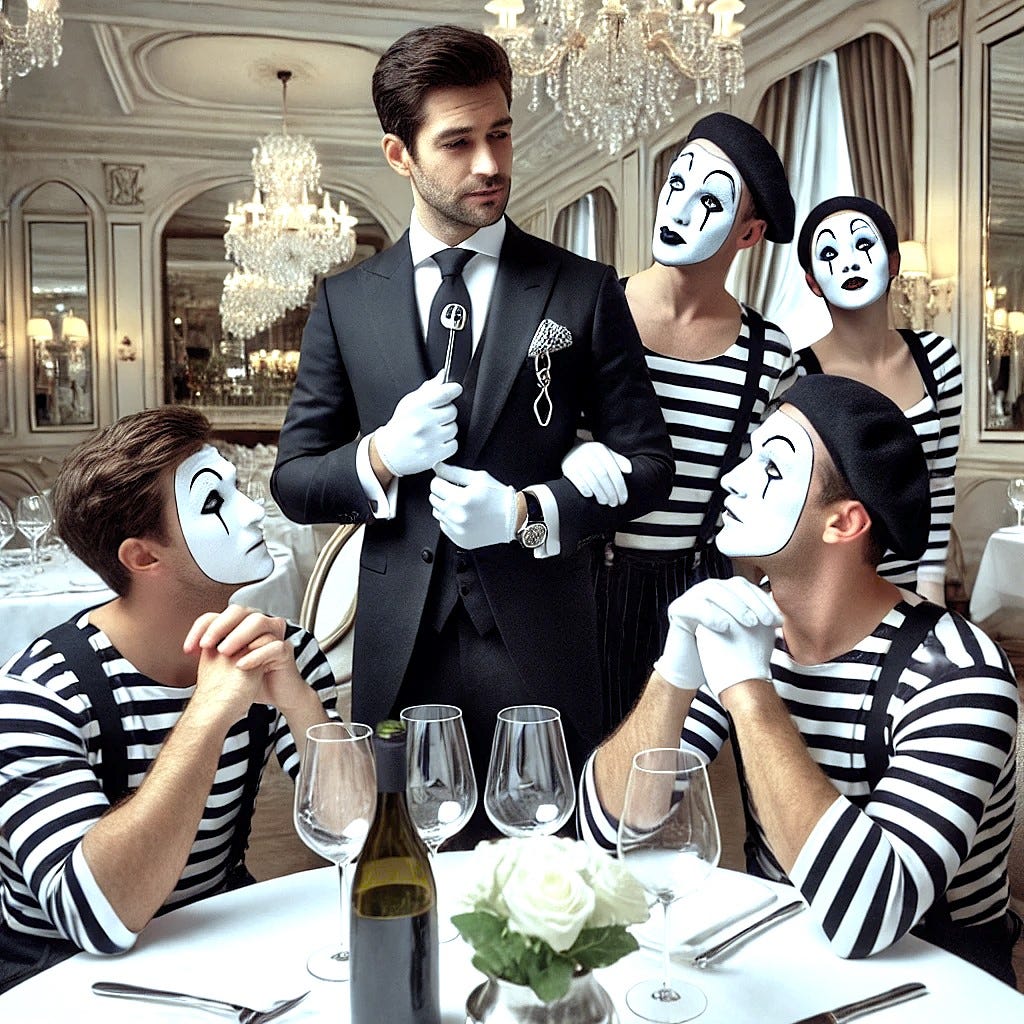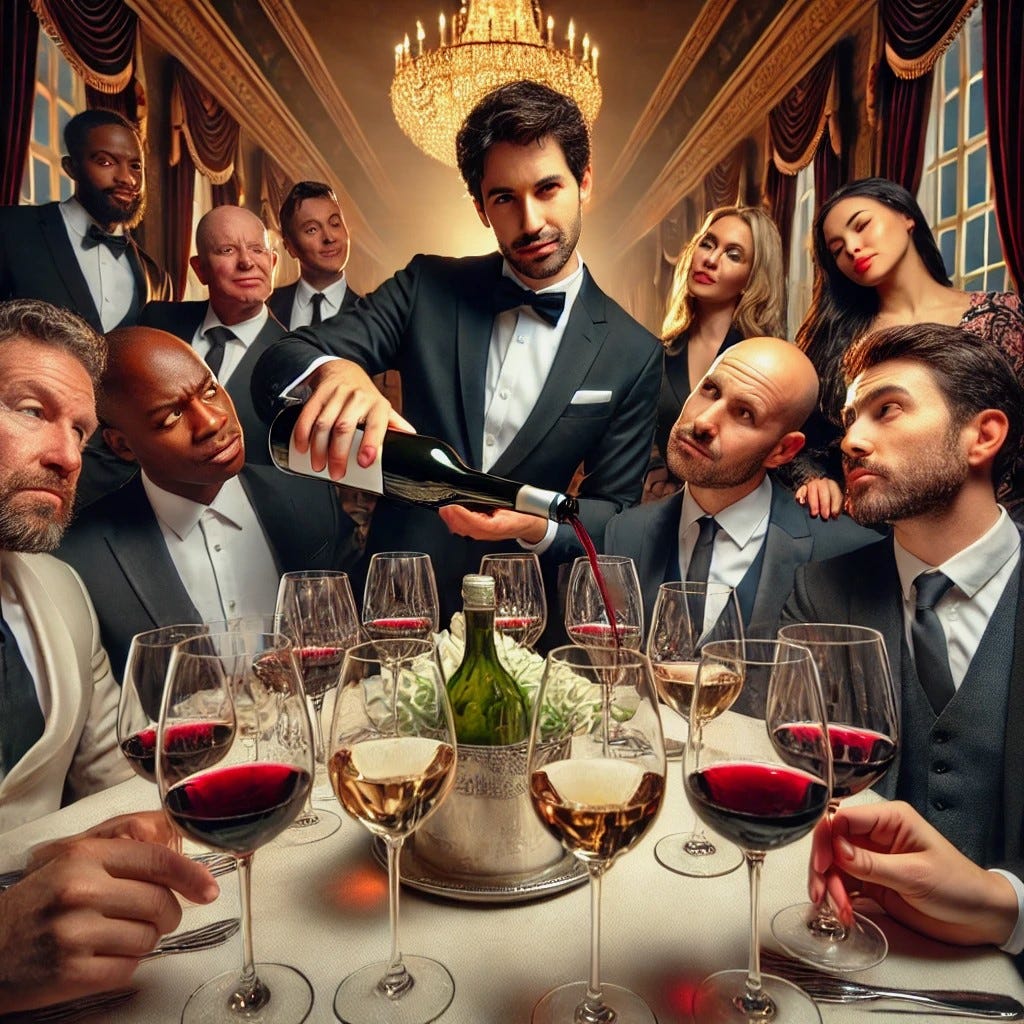In the world of fine dining and wine appreciation, the title of "Sommelier" has always been associated with an encyclopedic knowledge of grape varietals, wine regions, and the subtle nuances of terroir.
Aspiring sommeliers have historically spent countless hours memorizing facts, studying obscure wine laws, and mastering the intricate art of tasting.
But in the grand theatre of hospitality, is this really what matters most?
A new school has formed where the focus is not on what you know about wine, for that can be learned from books or online. Here, the question is, how do you make people feel about their wine experience. How do you learn the soft skills required to be a Sommelier?
At this revolutionary institution, they have turned traditional sommelier education on its head. Because, let's be honest, anyone can memorize things, but not everyone can charm a guest, read a room, or deliver a memorable dining experience.
The Indelible Wine Stain is known for our investigative journalism. From our breaking feature on “Decantergate” to blowing the lid on the “Illegal Barrel Rolling Races of the Russian River Valley.”
So, naturally we were thrilled when we had the unique opportunity to attend a series of classes at the ground-breaking “Vine Arts Academy” in Oregon, as well as attending the unique graduation gala dinner.
The school was set up by ex-Sommelier, Grafton Bimmel in 2021 and already boasts over 100 students, many of whom are veterans hoping for a re-birth.
At the Vine Arts Academy, after graduation, you will become a “Sommer” because, after all, as Bimmel says, “it is a Sommelier without the Lie.”
Winestain: Grafton, thank you for taking the time to speak with us. Can you tell us a bit about your background and how you got started in the industry?
Grafton Bimmel: Absolutely, it's a pleasure to be here. My journey started about 25 years ago. I was always fascinated by the complexity and history of wine, so I pursued a traditional sommelier education. I earned my certifications and quickly climbed the ranks in some prestigious restaurants.
Winestain: What inspired you to create The Vine Arts Academy?
Bimmel: Well, inspiration often comes from the most unexpected places. Early in my career, I was what you might call a "walking encyclopedia" of wine knowledge. I could recite obscure wine laws and identify any varietal blindfolded. However, I lacked the love of hospitality and the soft skills such as empathy, humility, that are so crucial in this industry. You know, my colleagues found me pretentious, and customers often felt intimidated rather than welcomed.
I realized that I needed to change and he turning point came during a particularly rough service. A regular customer, who had always been polite but distant, finally told me, "Graffy, you know everything about wine, but nothing about hospitality, about making people feel at home." That hit hard.
A young Grafton Bimmel during his tenure at the Vin de L'Extravagance Royale
Bimmel: I realized that my knowledge was useless if I couldn't connect with people on a personal level. I started working on my interpersonal skills, focusing on hospitality and genuine engagement. The transformation in my relationships with colleagues and customers was incredible.
Winestain: How did this lead to the founding of The Vine Arts Academy?
Bimmel: I saw a gap in the traditional sommelier education system. While it's important to have a deep understanding of wine, I believe that the heart of being a sommelier lies in the ability to create a memorable and enjoyable experience for the guest. I founded The Vine Arts Academy to bridge this gap. Our curriculum emphasizes hospitality, service, and soft skills, aiming to produce well-rounded sommeliers who can educate and enchant their guests.
Winestain: That's a unique approach. Do you see your school as a precursor to traditional sommelier training or as a reformation for existing sommeliers?
Bimmel: Both, actually. For aspiring sommeliers, The Vine Arts Academy provides a strong foundation in the human aspects of the job before they dive into the technical details. For current sommeliers who might be struggling with arrogance or pretentiousness, our school offers a chance for reformation. It's a place where they can learn to balance their vast knowledge with the charm and humility necessary to truly excel in this field. But the first step is to realize that that arrogance is just a sign of an unconfident person.
Each class, taught by either Bimmel or an expert in the field, was designed to change the person behind the flash cards, I started with “The Art of Smile.”
Smiling 101
In the Smile 101 course, students spend hours perfecting perfect smiles and understanding that in wine service, there is a smile for every situation.
Whether it's a welcoming smile, a reassuring smile, or the elusive "I completely understand your esoteric wine preference" smile, our students leave with a repertoire that can disarm even the most challenging of patron.
I watched in awe as Professor McDunnin demonstrated the nuances of a smile. "It's all in the eyes," he explained, his own twinkling with warmth.
Students practiced in front of mirrors, adjusting their smiles to exude sincerity, aiming for their one thousand hours of smiling mastery.
One student, trying to perfect his upside-down frown, looked like a microwaved lemon. He was caught between a mighty sneeze and a fake laugh.
"Come on, a bit more genuine, Thomas," McDunnin advised gently, "remember, you're delighted to see them, not plotting their financial demise."
Later, we were treated to a live demonstration where McDunnin maintained a smile for so long and so spell-bindingly radiant that it seemed to cast a glow over the room. It emanated a wave of serenity, a happy fog that might change a despot tyrant into a choir boy soprano.
“Careful," he whispered, "the trick is not to blind your guests with charm."
Seeing Eye to Eye
Nothing says, "I'm here for you," like the right amount of genuine eye contact.
In our Eye Contact Mastery class, Grafton Bimmel himself teaches the basics of how to hold, break, and shift gaze with the precision of a seasoned and polished soap opera actor. After all, making a guest validated and feel seen is a foundation of hospitality.
During one of his role-playing exercises, I was paired with a young student named Claire. We practiced maintaining eye contact while discussing her favorite wines. After an intense 120-second gaze, I felt like we had shared a lifetime of secrets. "Remember," Bimmel called out, "we want engagement, not intimidation…don’t forget, blink strategy is key and fully deliver your wine souls via your eye holes." One of Bimmel’s favorite phrases.
Claire and I exchanged a knowing glance, now fully aware of the fine line between being connected and just being a bit creepy and weird.
To really test our skills, the instructor had us engage in a staring contest with a portrait of Napoleon. "If you can maintain eye contact with him without flinching, you're ready for any guest," he declared.
By the end, I was convinced Napoleon and I had shared something special.
L.V.M: Language and Voice Modulation
Have you ever noticed how a soothing voice can enhance an entire evening? Especially during an intense Police interrogation.
At the Vine Arts Academy, students train with vocal coaches to develop tones that can convey warmth, confidence, and expertise rather than pretention, shame, bravado and belittling.
It seemed that in this class everything was covered, from sultry tones for intimate dinners to boisterous enthusiasm needed for a raucous Stag Party.
I was put on the spot by our teacher as we practiced reading wine labels in different voices and accents.
One student read a description of a Burn Cottage, Central Otago Pinot Noir with such deep, velvety tones that I almost forgot it was wine and not a love letter discovered in an old tin box, in my grandfather’s loft all those years ago.
Oh Grandpapa, if only you could have told Jeremy how you felt, but alas, it was a different world back then in 1930’s Moscow.
"Next," the instructor said, "try that again, but as if you're announcing the start of a grand feast after a fierce jousting battle in Olde England."
The resulting exuberant shout startled everyone, including the student themselves. The same Burn Cottage Pinot Noir was now showcased in a completely different way as if everything else should make way for the wine’s arrival. It was eye-opening to discover how a wine can taste so differently just by the way it is presented.
Body Language: the language of the body
Here we delve into the importance of posture, gestures, and subtle movements. We practiced how to glide through a room, use our hands to emphasize points without spilling wine, and nod in a way that conveys genuine interest in a guest's detailed description of their vacations.
Students balanced books on their heads while weaving through a mock dining room. One particularly ambitious student attempted a graceful bow, only to send three thick books flying into a row of empty wine glasses. "Remember, elegance is key," the instructor sighed. "And perhaps, fewer theatrics. We need to take the “me” and the “i” out of Sommelier, don’t we, Somlers?"
At this point, I realized that the teachers were relying on too many puns.
Way, too many puns. In fact, it was punishing.
Conversation Mastery
Knowing how to discuss weather, art, and current events is just as important as discussing pairings and details of vineyards and winemakers.
Here, students engaged in role-playing exercises to navigate all kinds of conversations, from the mundane to the extraordinary. But the key was to learn how to adapt from one ‘table’ to another with swiftness and ease.
In a speed-dating style exercise called “Speed Somm,” students switched partners every few minutes, discussing everything from vineyards to thin guards and from fermentations to incantations.
I was impressed by their ability to segue.
One student managed to transition from a heated debate about climate change to a lighthearted anecdote about a pet iguana’s dietary needs without missing a beat.
"Flexibility is essential," Brimmel noted, "especially when the conversation veers into uncharted territory."
We were also trained in conversation with imaginary guests, including a mime. It reminds me of the old adage, "If you can hold a conversation with a mime, you can handle any awkward silence."
Graduation Gala
I had the privilege of attending the Vine Art Academy's Graduation Gala, the ultimate test. The grand event was held in a lavish ballroom, complete with chandeliers and velvet drapes all remarkably made entirely out of paper. There was a seemingly endless array of wine of all price points and quality.
This exam wasn't just a demonstration of knowledge; it was a trial of composure, grace, and the ability to handle the most difficult guests imaginable. Eight tables of the worst guests that could be found were invited, each known for their challenging behavior on platforms like Open Table and TripAdvisor. Those monsters awaited the students with gritted teeth.
The grimacing agitators were no match for our brave students and after watching the lessons being applied in real-life, the skillful diffusion and transformation that the students exhibited, I am adamant that the Vine Arts Academy is what is missing and is the future of Sommelier education.
I congratulated the newly graduated “Sommers” and left the ballroom, with its paper chandeliers swaying gently and papier mâché velvet drapes fluttering in a paper breeze.
They had not just mastered the art of wine; they had mastered the art of grace under pressure, turning even the most awkward and challenging situations into a pleasurable dining experience.
And for that, I raise my glass to Grafton Bimmel and his extraordinary and unbelievable academy.




